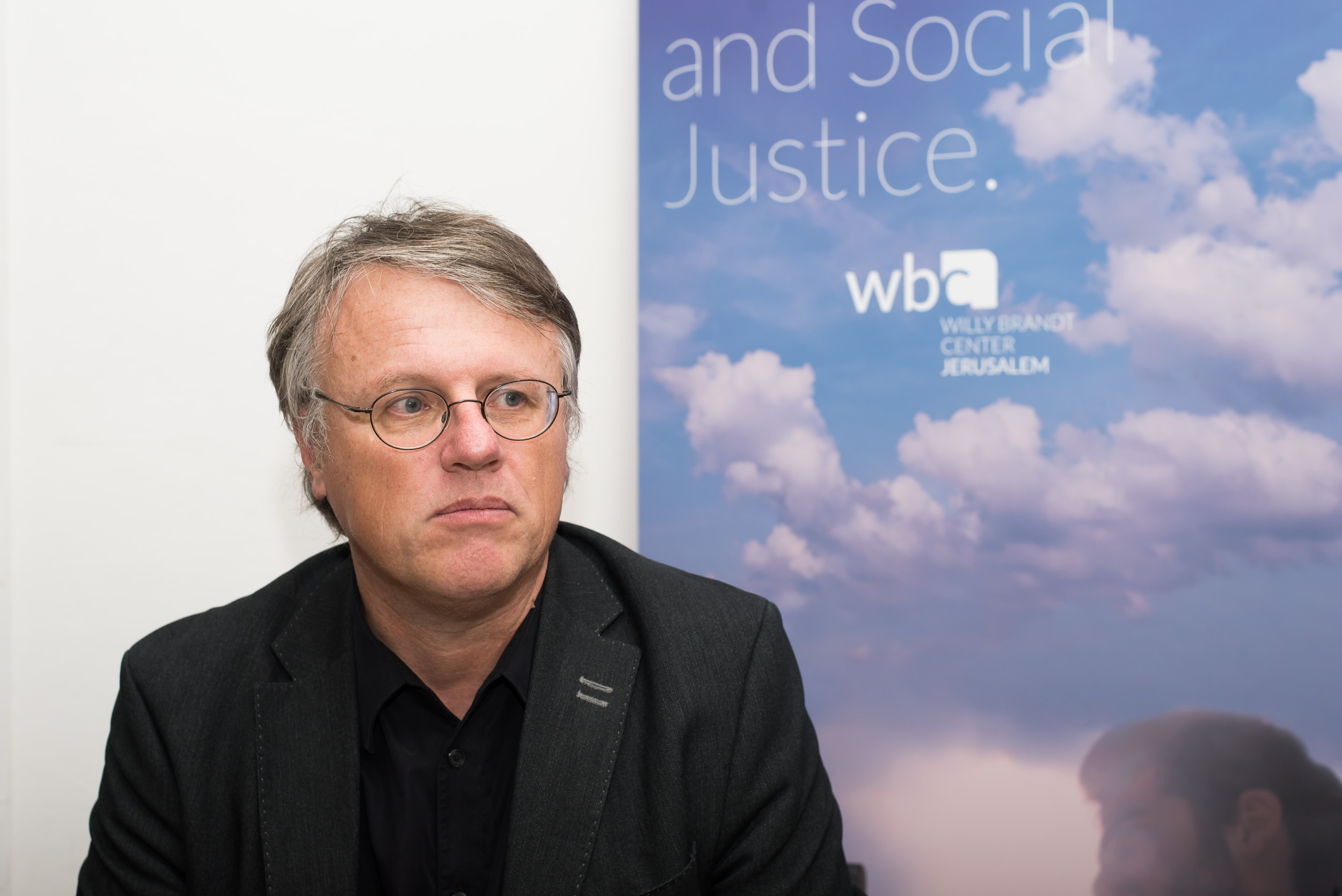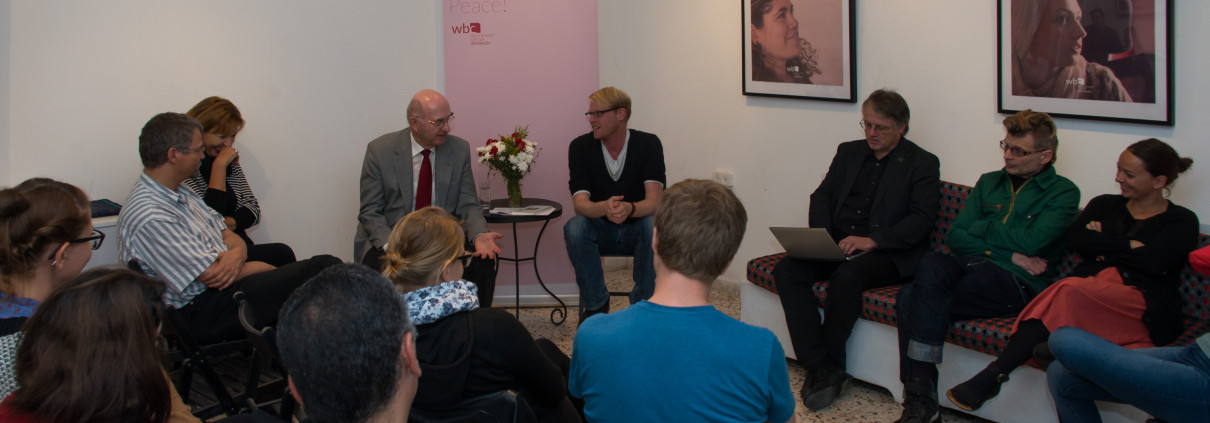Facing the future together: 50 years of politcal youth exchange
Review of our event: Facing the future together – more than 50 years of political youth exchange
The history of political youth exchange between Germany and the Middle East dates back longer then the official establishment of the diplomatic relations between Germany and Israel 50 years ago. On occasion of this anniversary the Willy Brandt Center Jerusalem hosted a BarCamp to take a closer look how the relations evolved that lead to the trilateral ties between young Israeli, Palestinian and German political activists. The BarCamp opened a space for direct and non-formal exchange. Therefore Willy Brandt Center invited representatives of three generations of political youth exchange: The generation of pioneers from the 60s and 70s, the generation of Oslo in the 80s and 90s and the generation of today enhancing an exchange of knowledge between all of them.
The generation of pioneers was impressively represented by Walter Haas a trade-unionist who came to Israel the first time in 1962. Because his visit happened before official relations were established it was very hard for him to travel. But despite the obstacles it was his fascination about socialist and collective ways of living together that made him travel anyways. He was willing to face the hard task to come as a representative of the people who committed the Holocaust to the jewish people. But the aim to build a better future gave him a continuous motivation to go on with his idea. Luckily he found partners that welcomed him and were willing to visit him in Germany. This visit and the return visit one year later laid the foundation for the political youth activities in the Middle East.
The generation of Oslo faced new challenges in their relation with each other. The conflict between Israelis and Palestinians went after the war of 1967 into a new stage, since the occupation of the West-Bank began and the PLO was pushing from outside Palestine towards an independent state. This debate was reflected in Europe and Germany by a political division with people taking side for either the Israeli or the Palestinian cause. In the light of the upcoming Oslo agreements some key actors in the political youth movements like Harald Schrapers took an important step by creating the idea of double solidarity. A double solidarity with both the legitimate needs of the Israeli and the Palestinian people to live in an independent state, with an equal life in peace and security with the chance of economic prosperity. In times when real peace was very close this principle helped to engage a trilateral dialogue between Israelis, Palestinians and Germans.
For political activist that are representing political youth movements today like Johanna Uekermann and Uri Keidar the trilateral idea of the 90s became reality. It is a guiding idea to address the complicated situation we are facing in the Middle East today. Even though current developments make a direct exchange hard from time to time, activist of today are convinced of the added value the dialogue across the borders has. They see it as their task today more than ever before to bridge the gaps that are dividing people. Because if there is one lesson to learn from the past it is that real peace can be reached not by dividing people but only in a cooperation that unites people for the struggle for liberty and equality.
Photos: Tobias Pietsch









